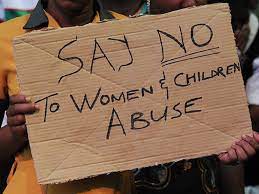By Bongiwe Dube
Matabeleland South women miners have challenged the government, unions, local authorities and mineworkers to work together in confronting indignity, discrimination and violence directed to women mineworkers in their working environments.
The miners, who all of them chose to remain anonymous, to protect their safety and jobs, said the harassment of women miners was widespread.
A Matobo District female artisanal miner said, “Gender-Based Violence (GBV) and sexual harassment of women mineworkers happen on a daily basis. Many times, our employers request sexual favors in exchange for promotions or better treatments. This can puts you in a difficult situation because if you refuse you might be kicked out of the mine.”
Another miner from Matobo said, GBV and sexual violence against women at mining sites are on the rise yet duty bearers are not doing enough to curb the challenge.
The sociocultural and institutional norms are seen as key factors exacerbating GBV and sexual harassment of women in the mine industry. Mine bosses and men allegedly use these norms to discriminate, undermine, silence and victimise women workers.
The concerned miners said as a result of men`s numerical advantage in the sector, they view the mine industry as a “Men`s World” hence the continued abuse of female mineworkers.
“I think the suffrage we encounter in the work place is rooted in deeply entrenched patriarchal and traditional norms. Most of our men co-workers undermine our presence,” another miner from Matobo said.
A Gwanda female artisanal miner said, “The fact that the mining industry is still male-dominated has been used by men to attack their women co-workers. In some situations, you will find that, the ratio between men and women workers is 10:1 which shows the extent in which men outnumber men in the sector”
The miner also said the situation is made worse by the continued undermining of women potential by mine owners who tend to overlook women during the recruiting process.
Women also raised concern on the state of their working environments. They alleged that, basic facilities like toilets and bathrooms are not women-friendly which leaves them vulnerable to violence and sexual harassment.
“It is like we are in the mining industry to play. Yet we are also parents determined to work extra hard to support our families. If we fail to do so, who will do this for us? Most men spend their money on alcohol not on food. It is common knowledge that women are more concerned with the feeding of their families hence the need to allow more women in the industry as it enhances food security,” another women miner from Gwanda said.
Women mineworkers called for the government, CSOs and local authorities to work with women to eliminate existing gender disparities in the mine industry.
They proposed meetings with authorities to discuss and identify the root causes of the intersecting forms of harassment, indignity, discrimination, gender stereotypes and inequalities.
The miners said there is need for stakeholders especially the government through the Ministry of Mines to develop practical strategies to eliminate GBV and the sexual harassment of women in the mining sector.
“A coordinated effort is needed to improve safety and health of women in the mining industry,” an Umzingwane miner said.
The miners also raised the need to strengthen and back up security forces to help end violence being perpetrated by the Machete wielding gangs who are also making their working environment unfriendly.
They expressed their commitment to continue using the available communication avenues to lobby for improved treatment of women in their mining work places.
Ends//


Recent Comments